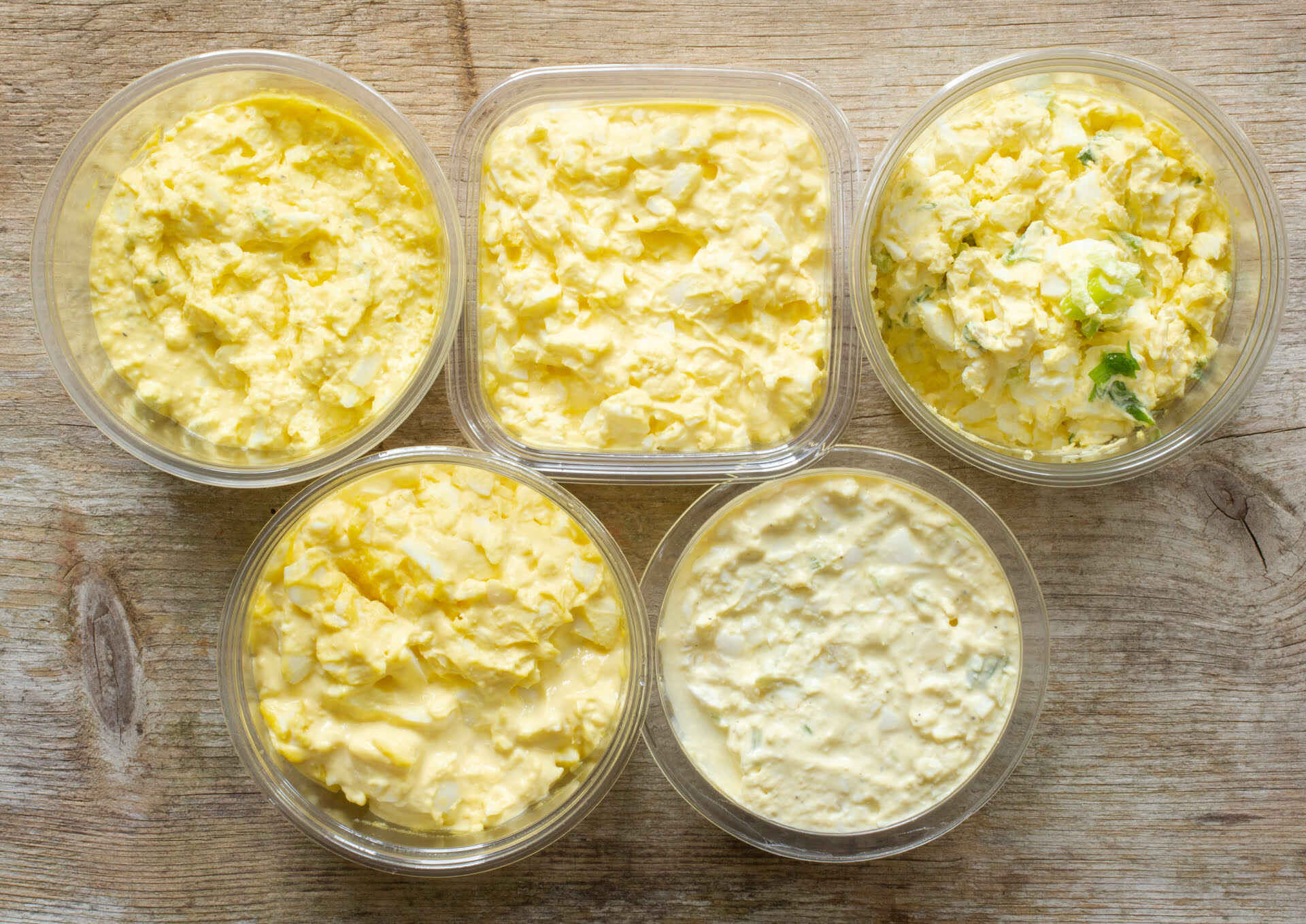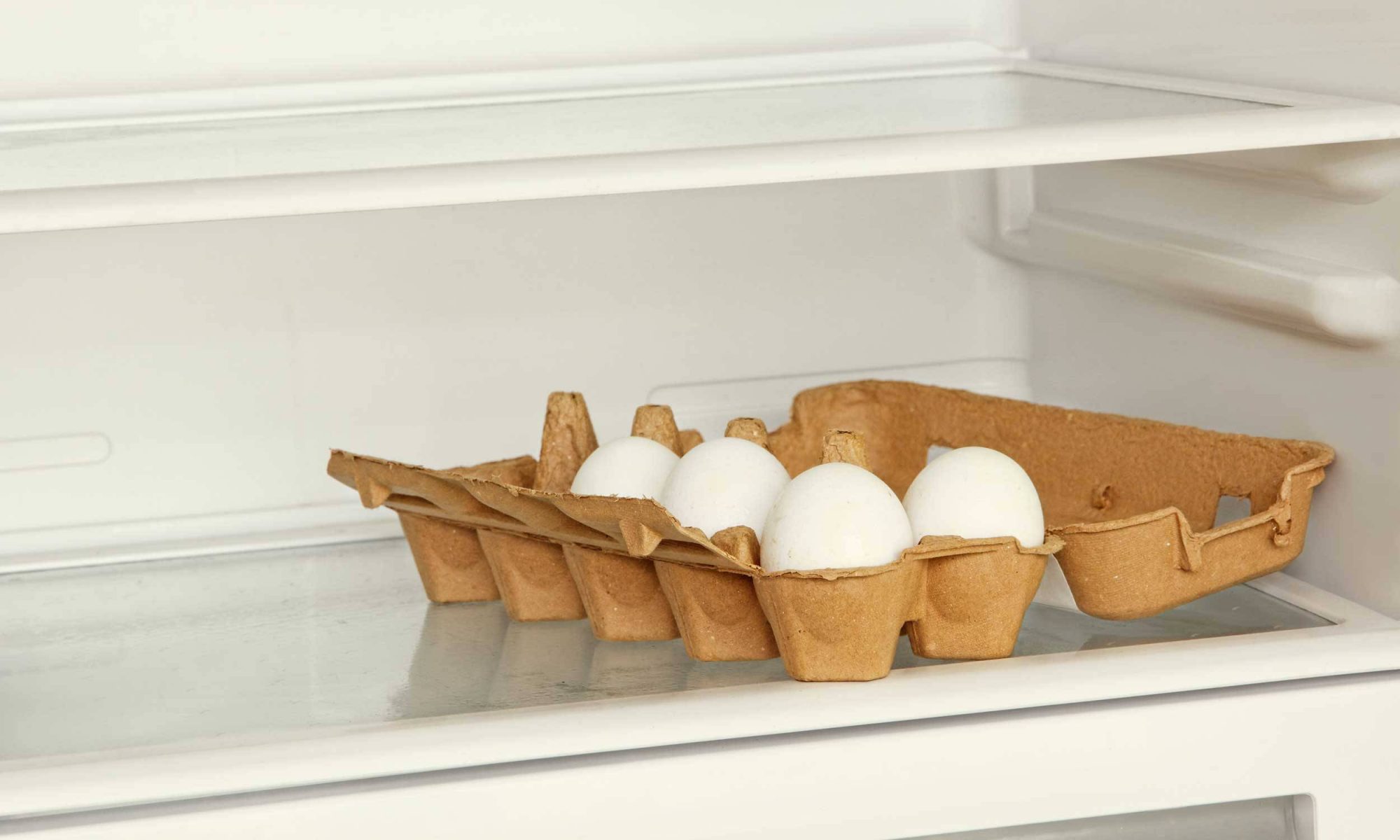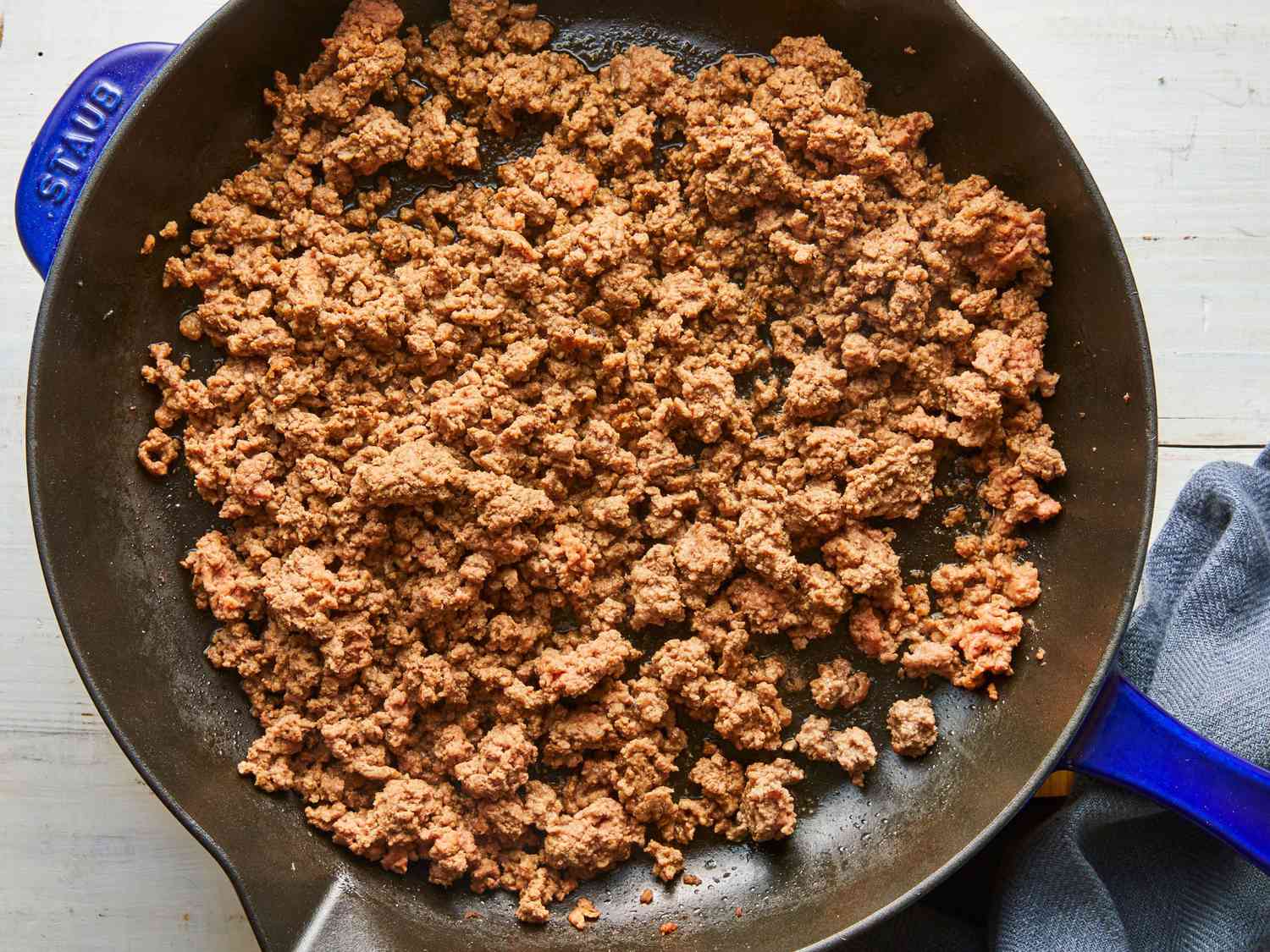

Articles
How Long Is Egg Salad Good In Refrigerator
Modified: November 1, 2024
Discover how long egg salad can stay fresh in the refrigerator and get useful tips on storing and enjoying it. Read more in this informative article.
(Many of the links in this article redirect to a specific reviewed product. Your purchase of these products through affiliate links helps to generate commission for Storables.com, at no extra cost. Learn more)
Introduction
Egg salad is a classic and versatile dish that makes for a delicious sandwich filling or a tasty addition to a salad. However, like any perishable food, it is important to be mindful of its shelf life to ensure its freshness and safety. If you’re wondering how long egg salad is good in the refrigerator, this article will provide you with all the information you need to know.
When it comes to determining the shelf life of egg salad, there are several factors that come into play. The ingredients used, the storage conditions, and proper food handling practices all contribute to the overall freshness and safety of the salad.
In this article, we will explore the factors that affect the shelf life of egg salad, discuss the proper storage methods, and provide tips on how to extend its freshness. Whether you’ve recently made a batch of egg salad or you’re considering purchasing pre-made egg salad from a store, understanding its shelf life is essential to ensure you’re consuming it at its best.
So, let’s dive in and explore the key factors that influence the shelf life of egg salad.
Key Takeaways:
- Proper storage, hygiene, and ingredient quality are crucial for extending the shelf life of egg salad. Refrigerate promptly, use airtight containers, and consume within 3-5 days for optimal freshness and safety.
- Recognize signs of spoilage in egg salad, such as odor, mold, or texture changes, to avoid foodborne illnesses. When in doubt, discard and prioritize food safety.
Factors Affecting the Shelf Life of Egg Salad
Several factors contribute to the shelf life of egg salad, including the freshness of the ingredients used, proper food handling practices, and the storage conditions. Let’s take a closer look at these factors:
- Ingredient quality: The quality and freshness of the eggs used in the salad play a significant role in determining its shelf life. Using fresh eggs that have been properly stored can help extend the overall freshness of the salad. Additionally, the quality of other ingredients, such as mayonnaise, vegetables, and herbs, can also impact the shelf life.
- Food handling practices: Proper food handling practices are crucial in ensuring the safety and longevity of egg salad. It is essential to use clean utensils and containers when preparing and serving the salad to prevent cross-contamination. Avoid leaving egg salad out at room temperature for extended periods, as this can increase the risk of bacterial growth.
- Storage conditions: The way you store egg salad plays a vital role in its shelf life. It is recommended to keep egg salad refrigerated at a temperature below 40 degrees Fahrenheit (4 degrees Celsius). Make sure to store it in an airtight container to prevent odors from other foods from seeping in.
- Hygiene practices: Maintaining proper hygiene is essential in preserving the freshness and safety of egg salad. Wash your hands thoroughly before preparing or serving the salad to prevent the introduction of harmful bacteria. Avoid using expired ingredients or those that show signs of spoilage.
By considering these factors and implementing proper food handling practices, you can significantly extend the shelf life of your egg salad and ensure its freshness and safety for consumption.
Proper Storage of Egg Salad
Proper storage is key to maintaining the freshness and quality of egg salad. Follow these guidelines to ensure that your egg salad stays safe to eat:
- Refrigerate promptly: After preparing or purchasing egg salad, make sure to refrigerate it promptly. Bacteria can start to grow rapidly at room temperature, so it’s important to get it into the refrigerator within two hours of preparation or purchase.
- Use airtight containers: Store egg salad in an airtight container to keep out moisture and prevent odors from other foods in the refrigerator. This will help maintain its quality and prevent cross-contamination.
- Label and date: To keep track of the freshness, always label the container with the date of preparation or purchase. This will help you keep track of how long the egg salad has been refrigerated.
- Keep away from raw ingredients: Store egg salad away from raw ingredients, such as raw eggs, raw meat, or raw vegetables. This will help prevent cross-contamination and minimize the risk of foodborne illnesses.
- Keep refrigerator temperature consistent: Ensure that your refrigerator is set at a temperature below 40 degrees Fahrenheit (4 degrees Celsius) to slow down bacterial growth. Regularly check and monitor the temperature to ensure it remains consistent.
- Consume within recommended timeframe: While the exact shelf life can vary depending on the ingredients and storage conditions, it is generally recommended to consume egg salad within 3-5 days of preparation or purchase. Discard any leftover egg salad that has been kept for longer than this timeframe.
By following these storage guidelines, you can maximize the shelf life of your egg salad, ensuring that it remains safe and enjoyable to eat.
Signs of Spoilage in Egg Salad
It is important to be able to recognize the signs of spoilage in egg salad to ensure that you consume it while it is still safe and fresh. Here are some common indicators that your egg salad may have spoiled:
- Unpleasant odor: If your egg salad emits a foul or off-putting odor, it is a clear sign of spoilage. If it smells sour, rancid, or has a strong ammonia-like scent, it is best to discard it.
- Visible mold: Mold growth is a definite sign that the egg salad has reached the point of spoilage. If you notice any green, white, or black spots on the surface of the salad or anywhere within it, it is not safe to consume.
- Change in color or texture: Pay attention to any significant changes in the color or texture of the egg salad. If it has become discolored, overly mushy, or slimy, it is a sure sign that it has gone bad.
- Bitter or metallic taste: If the taste of the egg salad is bitter or metallic, it indicates spoilage. Trust your sense of taste and discard the salad if it does not taste fresh or pleasant.
- Extended storage time: Even if your egg salad does not exhibit visible signs of spoilage, if it has been stored for an extended period beyond the recommended timeframe (3-5 days), it is best to err on the side of caution and discard it.
It is crucial to note that consuming spoiled egg salad can lead to foodborne illnesses and cause gastrointestinal problems. It is always better to be safe than sorry when it comes to food safety, especially when dealing with perishable items like egg salad.
If you notice any of these signs of spoilage, it is essential to discard the egg salad immediately, as consuming spoiled food can pose a health risk.
Egg salad can be stored in the refrigerator for 3-5 days. Make sure it is in an airtight container to maintain freshness. Always check for any signs of spoilage before consuming.
How Long is Egg Salad Good in the Refrigerator?
The shelf life of egg salad can vary depending on several factors, including the freshness of the ingredients used, proper storage conditions, and adherence to food safety practices. While the exact duration can differ, here are some general guidelines to help you determine how long egg salad is good in the refrigerator:
Generally, homemade egg salad can be stored in the refrigerator for 3-5 days. This timeframe takes into account the freshness of the ingredients used and proper storage conditions. It is important to note that this is a general guideline, and the actual shelf life can be influenced by various factors.
If you have purchased pre-made egg salad from a store, it is crucial to check the label for the recommended “use by” or “best by” date. Manufacturers often provide a timeframe for their product’s freshness, which should be followed for optimal quality and safety.
It is important to note that the clock starts ticking on the shelf life of egg salad as soon as it is prepared or purchased. Therefore, it is crucial to refrigerate it promptly and consume it within the recommended timeframes for the best quality and safety.
Always trust your senses when determining the freshness of egg salad. If you notice any signs of spoilage, such as a foul odor, unusual texture, or mold growth, it is best to discard it immediately, regardless of the time it has been refrigerated.
It is worth mentioning that when it comes to food safety, it is better to be cautious and discard egg salad if you are unsure about its freshness, rather than risk consuming spoiled food that can lead to foodborne illnesses.
By following proper storage practices, consuming egg salad within the recommended timeframes, and being mindful of signs of spoilage, you can enjoy egg salad at its freshest and safest.
Tips to Extend the Shelf Life of Egg Salad
To ensure that your egg salad stays fresh and safe for as long as possible, consider implementing these tips to extend its shelf life:
- Use fresh ingredients: Start with fresh and high-quality ingredients when making egg salad. Fresh eggs and other ingredients will contribute to the overall freshness and longevity of the salad.
- Properly store leftovers: After enjoying a serving of egg salad, make sure to promptly transfer the leftovers into an airtight container and store them in the refrigerator to prevent bacterial growth and maintain freshness.
- Avoid excessive moisture: Moisture can lead to the breakdown of the salad, resulting in a shorter shelf life. Be mindful to drain excess liquid from ingredients like pickles or relish, and avoid adding extra sauce or dressing until just before serving.
- Separate dressing until serving: If you prefer to add dressing to your egg salad, consider storing it separately. This will prevent the dressing from causing the salad to become soggy over time, helping to prolong its shelf life.
- Divide into smaller portions: If you anticipate not consuming the entire batch of egg salad within a couple of days, consider dividing it into smaller individual portions. This way, you can take out only what you need, reducing the potential for the entire batch to spoil at once.
- Don’t mix in delicate ingredients in advance: Ingredients like lettuce or fresh herbs can wilt or become soggy if mixed into the egg salad too far in advance. Add these delicate ingredients just before serving to maintain their freshness and texture.
- Practice good hygiene: Always wash your hands thoroughly before handling food, including preparing and serving egg salad. Good hygiene practices will help prevent the introduction of harmful bacteria that can lead to spoilage.
- Regularly check for signs of spoilage: Open the container of egg salad and check for any signs of spoilage before consuming. Look for changes in color, texture, or any off-putting odors. If you notice any of these signs, discard the salad immediately.
By following these tips, you can maximize the shelf life of your egg salad and enjoy it for a longer period without compromising its freshness and safety.
Conclusion
Proper storage and handling of egg salad are crucial in maintaining its freshness and ensuring its safety for consumption. By understanding the factors that can affect its shelf life, implementing proper storage practices, and being aware of signs of spoilage, you can maximize the lifespan of your egg salad and avoid any potential health risks.
Remember to use fresh ingredients, refrigerate leftovers promptly, and store the salad in an airtight container to prevent bacterial growth and maintain its flavor and texture. Following recommended storage guidelines and consuming egg salad within the recommended timeframes will help ensure that you enjoy it at its best.
If you have purchased pre-made egg salad from a store, always check the label for the recommended use-by date, and be mindful to consume it before that date for optimal freshness and quality.
By practicing good hygiene, regularly checking for signs of spoilage, and being cautious about consuming egg salad that has been kept for an extended period, you can reduce the risk of foodborne illnesses and enjoy your egg salad with peace of mind.
Experiment with different variations and add your favorite ingredients to create a personalized egg salad that suits your taste preferences. And remember, when in doubt, it’s better to discard egg salad that seems questionable rather than risk consuming spoiled food.
So, the next time you make or purchase egg salad, follow these storage guidelines, enjoy it within the recommended timeframe, and savor every tasty bite while knowing you’ve done everything to keep it fresh and safe.
Frequently Asked Questions about How Long Is Egg Salad Good In Refrigerator
Was this page helpful?
At Storables.com, we guarantee accurate and reliable information. Our content, validated by Expert Board Contributors, is crafted following stringent Editorial Policies. We're committed to providing you with well-researched, expert-backed insights for all your informational needs.















0 thoughts on “How Long Is Egg Salad Good In Refrigerator”